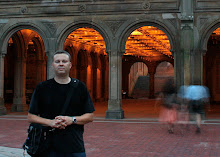When I lived in Argentina, we used to see pigeons like these all the time in Buenos Aires. I always found them to be filthy. So when I went to see London Bridge in Arizona, I was confirmed in the sentiment. Here they were hangingout on one of the pillars and it was all birds and they were isolated in thier filth. Thanks for that. They liked the separated spot (it was surrounded with water) to sleep in the shade. I like then over there.
These other guys, they would not leave us be.
| Camera: | Canon EOS Digital Rebel XTi |
| Exposure: | 0.013 sec (1/80) |
| Aperture: | f/6.3 |
| Focal Length: | 300 mm |
| ISO Speed: | 400 |
| Exposure Bias: | 0 EV |
